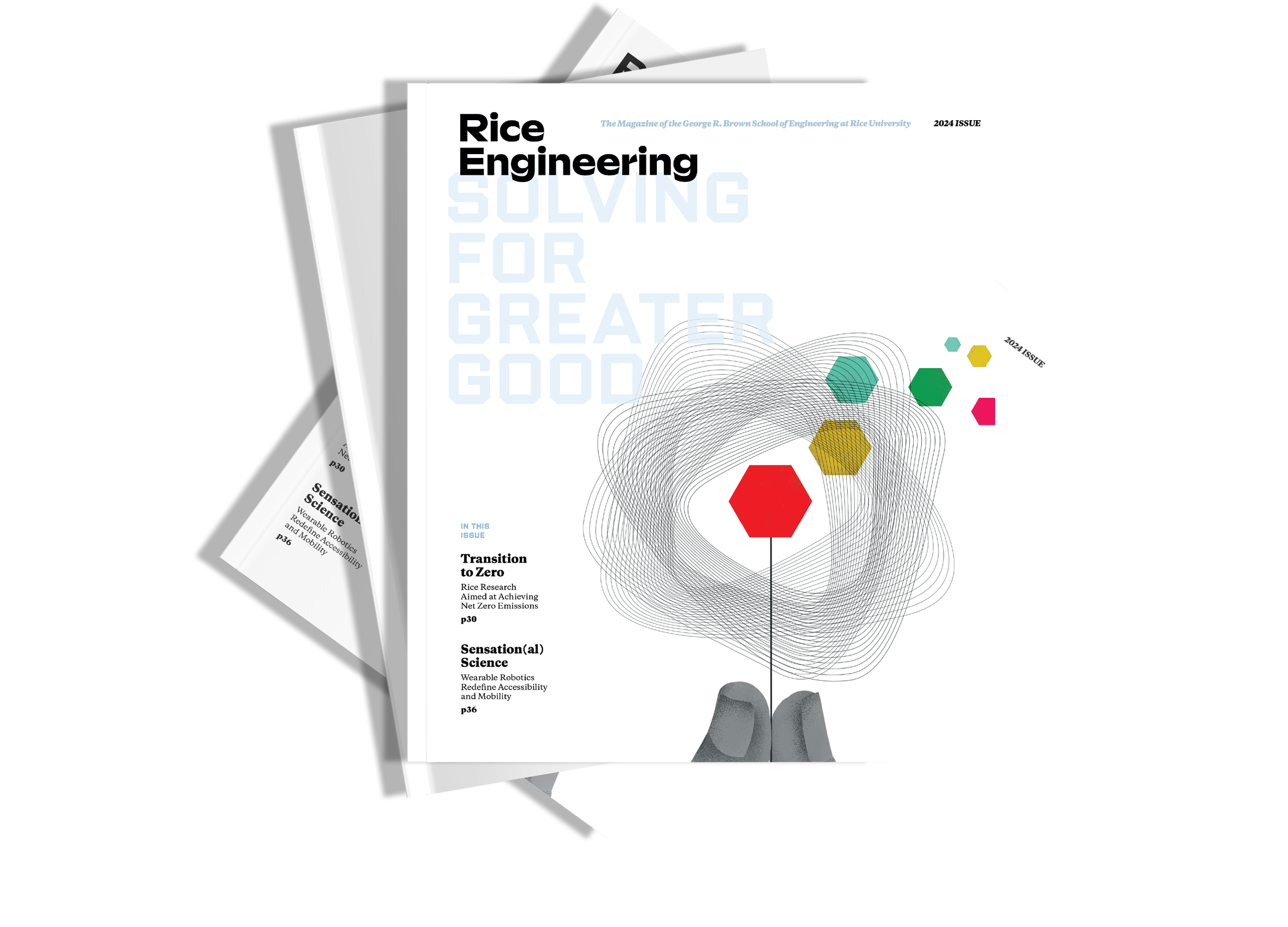
The spring 2024 issue of Rice Engineering Magazine is here!
At Rice Engineering, we are driven by a passion for innovation and a commitment to responsible engineering practices. It’s with great excitement that we unveil the new design of Rice Engineering magazine, which underscores our dedication to excellence in research, education, and service. The 2023-24 issue is full of news about how Rice Engineering is solving for greater good.
Broadening Access to Cervical Cancer Screening

Rice faculty and students are committed to addressing healthcare disparities through innovative research. The work done by a bioengineering team in Professor Rebecca Richards-Kortum’s laboratory is just one example.
In 2022, more than 650,000 new cases of cervical cancer were diagnosed globally, and 300,000 deaths occurred in low- and middle-income countries. HPV, a family of viruses, can cause persistent infections that result in cervical cancer, which is preventable and curable if detected early and managed effectively. Rice University bioengineers have demonstrated a low-cost, point-of-care DNA test for HPV infections that could make cervical cancer screening more accessible.
Nine engineers from Richards-Kortum’s laboratory spent more than two years developing a DNA testing platform that combines two technologies, isothermal DNA amplification and lateral flow detection, that greatly simplifies the equipment needs and testing procedures. Richards-Kortum’s team and partners from the National Cancer Institute, the Mozambique Ministry of Health, Baylor College of Medicine, and The University of Texas MD Anderson Cancer Center showed the platform could produce clinically relevant results on samples collected at both U.S. clinical sites and at clinical field sites in Mozambique.
“Preventing cervical cancer is a matter of access,” said Kathryn Kundrod, lead author, who received her Ph.D. from Rice and is now a cancer prevention fellow at the National Cancer Institute and senior advisor for Cancer Moonshot policy coordination at the White House Office of Science and Technology Policy. “Our study demonstrates a testing process that — if combined with point-of-care diagnostic and treatment technologies — could allow women who’ve never had access to cervical cancer prevention to be screened and treated in a single visit in settings like a small clinic or a mobile diagnostic van.”
In the study, the researchers showed their six-step test for HPV16 and HPV18 — which account for about 70% percent of cervical cancer — delivered results in 45 minutes and required just two pieces of equipment. One, a small centrifuge, is widely available for about $500. The other, a purpose-built, dual-chamber heater called NATflow, allowed the researchers to use disposable cartridges to avoid false positives arising from workspace contamination, a major challenge for point-of-care molecular testing. According to Kundrod, if both the NATflow platform and test cartridges were produced on a large scale, each dual-chamber heater would cost an estimated $500 and each test less than $5.
